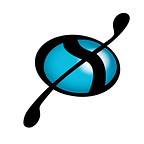6 things we’re improving with blockchain (part 1 of 2)
With global spending on blockchain solutions predicted to double to 2.1 million USD this year and an expected widespread adoption in 5.9 years according to a study by Cowen and Company, integrating blockchain technology into different services is becoming more relevant for both major corporations and tech startups. TraXion, as a blockchain startup, aims to bring its entire portfolio of successful platforms and development solutions onto the blockchain.
But what does this mean for the everyday person? By leveraging blockchain tech to make services in six areas more transparent and accessible, TraXion will be able to help not only the industry players, but also the organizations, families, and individuals who need these services.
1. Healthcare
In an industry where around 455 billion USD is lost to fraud globally every year, and with a lot of relevant information remaining recorded on paper in developing countries, blockchain presents a cost-reducing opportunity to make patient records and information verifiable and accessible.
Companies working in this space are looking at bridging this gap between patients, their data, and medical services. Walmart recently won a device patent for first respondents in emergencies to easily access a patient’s medical information. Startups like MyHealthMyData in Europe are designing token economies enabling patients to control their data and incentivize their health and wellness practices.
TraXion’s BayaniHealth already connects SMEs and entrepreneurs to affordable and manageable healthcare plans. For an entrepreneur like Ysabel, who works 24/7 to keep both her business and family healthy, bringing BayaniHealth onto the blockchain means a more seamless healthcare experience that can be extended to Ysabel’s family and employees. Ysabel can also take this experience outside of the hospital and into her daily routine, managing her health on-the-go.
2. Donations
Trust in charities and NGOs has been declining in recent months, especially with the recent Oxfam scandal in early February. In the UK, it went down by six percentage points since last year, according to a survey done by consultancy nfpSynergy. With charities and NGOs dependent on donors and trust, the problems the sector has been facing weaken this crucial relationship.
Blockchain can improve this relationship and reduce charity fraud with the technology’s characteristic transparency. Fidelity Charitable, housing the largest donor-advised fund in the US, saw a 7 million USD increase in cryptocurrency donations in 2017 from the past two years combined. Startups such as HelperBit, GiveTrack and Alice, who use this technology for crowdfunding and donations, help donors keep track of their donations and accelerate transactions between donors and beneficiaries.
With nearly two million USD raised for 120 NGOs last year, GavaGives aims to be more than just a crowdfunding platform that helps users track their campaigns. A working example: Jenalyn, founder of a disaster relief NGO, started a GavaGives campaign for victims of a typhoon that recently devastated her hometown. Having run successful campaigns on GavaGives before, Jenalyn’s NGO has a solid track record that donors are able to verify with the help of the platform’s AI-run Giving Score. Thanks to GavaGives on the blockchain, donations come in faster and Jenalyn is able to source much-needed supplies in time for the affected families. The donors are also able to track their donations as it goes a long way to help families in Jenalyn’s hometown weather the storm.
3. Insurance
While insurance has been vastly transformed over the centuries, the systems involved are still largely error-prone and very costly. Insurance fraud in the US is estimated to surpass 40 billion USD a year, with insurance claims denials in US hospitals alone costing 262 billion USD in 2017, according to a research brief by CBInsights. These numbers are just part of the big picture, as customers are also on the receiving end of these inefficiencies.
With the efficiency and security offered by blockchain technology, industry players are looking to reduce risk, paperwork, and fraud in transactions. Allianz Insurance has successfully implemented a ‘captive’ insurance prototype built on Hyperledger Fabric to improve corporate insurance transactions. Logistics giant Maersk recently started using Insurwave to manage 1,000 vessels and 500,000 digital ledger transactions.
Part of TraXion’s portfolio is Azurrance, a software service that enables policyholders to manage their insurance products and offers an IoT device to measure driving-related insurance. For policyholders like Ricardo, who manages a taxi fleet in a city prone to traffic accidents, accessing Azurrance on the blockchain will help him take better care of his drivers who weave through the city streets every day. Policy claims, risk estimation and insurance management will be easier for Ricardo to handle.
Ricardo, Jenalyn, and Ysabel are not the only ones who will benefit from TraXion’s lineup of blockchain-based solutions. Stay tuned for Part 2 where we tackle three more areas we’re improving with blockchain and how it will help people from different walks of life. In the meantime, you can keep track of our weekly updates on Facebook and Twitter and learn more about us and our current token sale at traxion.tech.
